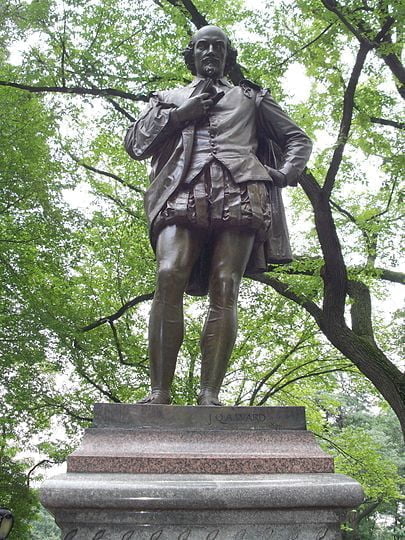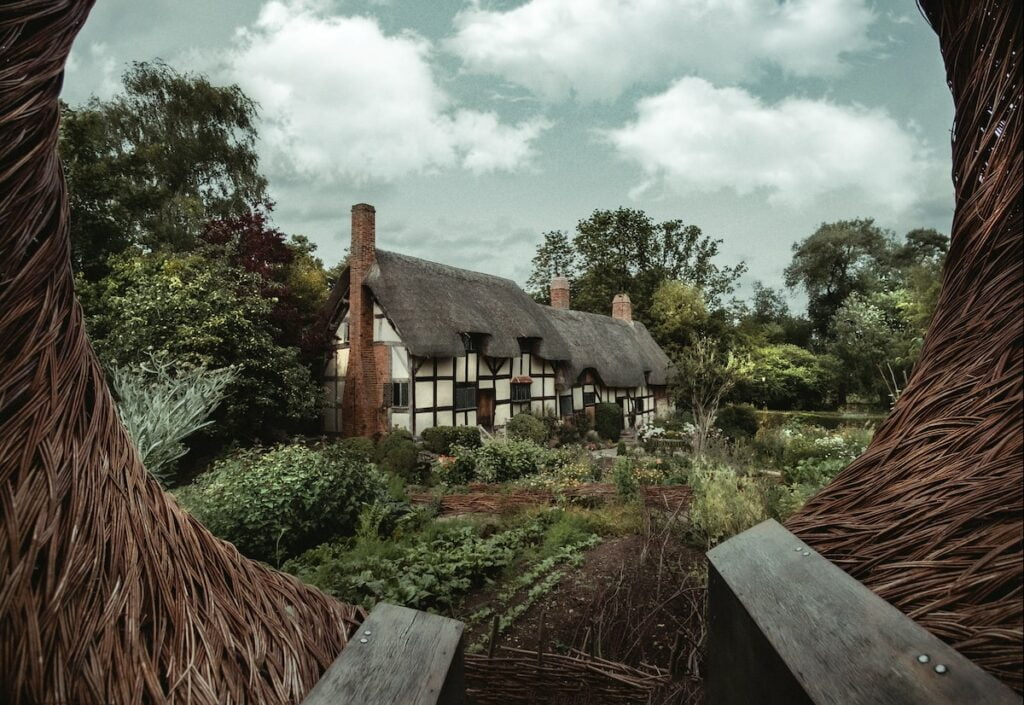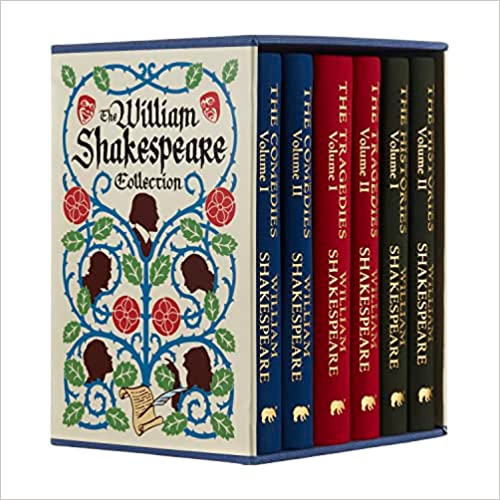Learning From Shakespeare: We Know What We Are, But Know Not What We May Be

In the heart of England, there exists a quaint town named Stratford-Upon-Avon, known to millions around the world as the birthplace of the literary titan, William Shakespeare. This charming town welcomes approximately 2.5 million visitors each year, each person eager to tread the path that once nurtured the world’s preeminent playwright. Shakespeare’s works, comprising 39 plays, 154 sonnets, and two long narrative poems, have been translated into every major living language, with over 4 billion copies sold worldwide. Yet, beyond his remarkable literary achievements, Shakespeare’s life in Stratford-Upon-Avon and later in London also tells a powerful story of entrepreneurial success that is equally inspiring and timeless.

Shakespeare’s courage to be what we may be one day
A maverick who left an indelible mark on literature, Shakespeare was also an adept entrepreneur, one who defied convention and ventured into uncharted territories. His entrepreneurial journey, beginning in the pastoral setting of Stratford-Upon-Avon, was marked by audacity, innovation, and resilience. Through these qualities, he transformed not only the world of literature but also the very landscape of London, leaving a legacy that has endured for more than four centuries.
Shakespeare’s life and achievements serve as a beacon for aspiring entrepreneurs, illustrating that success is not born solely of fortune, but from the courage to envision the extraordinary, the will to act, and the persistence to transform adversity into opportunity. As we delve deeper into this narrative, let us remember his insightful words from ‘Romeo and Juliet’: “It is not in the stars to hold our destiny but in ourselves.” Shakespeare held his destiny, steering it with an entrepreneurial spirit that continues to inspire and guide us today.

Unraveling the tapestry of Shakespeare’s vast literary canon, one cannot overlook the poignant tale of ‘Romeo and Juliet’. This tragic love story, which has transcended time and cultural boundaries, is based on the real-life narrative of two ill-fated lovers in Verona, Italy, in 1303. This passionate tale of love and sacrifice found its way to Shakespeare through Arthur Brooke’s 1562 narrative poem, “The Tragical History of Romeo and Juliet.”
In the cobblestone lanes of medieval Verona, two young lovers dared to defy the age-old feud between their families, the Montagues and the Capulets. Their love story was marked by passion, rebellion, and a tragic end that left an indelible mark on Verona’s history. This tale of love and loss traveled through time and space, crossing the sea to reach the British Isles, where it caught the attention of a young poet and playwright, William Shakespeare.
When Shakespeare encountered Brooke’s poem, he saw more than just a tale of tragic love; he saw a narrative ripe with potential, brimming with the raw emotion, inherent drama, and timeless themes that would resonate with audiences. As an entrepreneur, he had an uncanny ability to recognize opportunity and potential. Drawing from Brooke’s rendition, Shakespeare added depth to the characters, complexity to the narrative, and a profound exploration of themes such as love, fate, conflict, and death.
In ‘Romeo and Juliet‘, Shakespeare transformed the tale of the Veronese lovers into a rich, multi-faceted exploration of human emotion and experience. He turned the raw material of Brooke’s poem into a dramatic masterpiece that has captivated audiences for centuries. The story of ‘Romeo and Juliet’ not only showcases Shakespeare’s literary genius but also encapsulates his entrepreneurial spirit, demonstrating his ability to take an existing narrative and enhance it to create a timeless work of art.
Shakespeare Inspired Tours and Attractions
The tale of the star-crossed lovers from Verona has been retold countless times across various mediums, from opera and ballet to film and graphic novels. Its influence on popular culture is a testament to Shakespeare’s unique ability to tap into universal human experiences, creating narratives that remain relevant and impactful. This enduring relevance is reflective of successful entrepreneurship, which lies in creating products or services that stand the test of time.
Shakespeare’s rendition of ‘Romeo and Juliet’ is more than just a tragic love story; it is a testament to his entrepreneurial vision and his unparalleled ability to touch the human heart through his words. As entrepreneurs, we can draw inspiration from Shakespeare’s approach to the tale of Romeo and Juliet. Like him, we can look at the world around us, see the potential in existing ideas, and transform them into something unique and enduring.
In the timeless words of Juliet, “What’s in a name? That which we call a rose by any other name would smell as sweet.” Just as Juliet posits that a name does not define the essence of a thing, so too does Shakespeare’s entrepreneurial journey remind us that it is not our circumstances, but our vision and determination, that shape our destiny.
We know what we are, but know not what we may be.
Shakespeare, Hamlet

This wisdom gains profound resonance when we consider how Shakespeare transformed the landscape of London. Forbidden to perform in the theatres on the north side of the River Thames due to strict regulations, Shakespeare did not falter. Instead, he turned his eyes to the untapped potential of South London. This daring move reveals the inherent risk-taking and visionary nature of the entrepreneur in him.
He, along with his company, the Lord Chamberlain’s Men, constructed the Globe Theatre on the southern bank of the Thames. This was a bold decision, as the south bank was often seen as the less reputable side of London, frequented by bear-baiting pits and brothels. However, the entrepreneurial spirit sees not just what is, but what could be. For Shakespeare, the south bank was an opportunity, a blank canvas upon which he could paint his vision.
And paint he did. The Globe Theatre soon became a magnet for audiences, who would flock from all over London, braving the Thames to witness the magic of Shakespeare’s plays. This shift brought about a significant transformation in South London. It became a vibrant hub of culture, a testament to Shakespeare’s vision and his power to draw people into his world. It reminds us of his words in ‘The Tempest’: “What’s past is prologue.” The past of South London was not its destiny; instead, it was merely a prologue to its future, reshaped by Shakespeare.
His entrepreneurial spirit did not stop there. He went on to build the Blackfriars Theatre, creating a closed, candlelit venue that allowed performances throughout the year, unhindered by the weather. This diversification shows Shakespeare’s adaptability and his intuitive understanding of his audience’s needs.
As a result, the district began to flourish. Shakespeare’s influence seeped into the fabric of South London, transforming it from a place of disrepute to a cultural mecca. It is a testament to Shakespeare’s indomitable entrepreneurial spirit and his ability to turn adversity into opportunity, proving the truth of his words in ‘Measure for Measure’: “Our doubts are traitors, and make us lose the good we oft might win, by fearing to attempt.”
Shakespeare’s influence on South London is a testament to the power of entrepreneurial vision. He did not merely adapt to the world; he changed it, creating opportunities where none seemed to exist. His legacy serves as an enduring reminder that entrepreneurship is not just about business; it’s about vision, courage, and the audacity to challenge the status quo. And as Shakespeare’s birthplace, Stratford-upon-Avon, still echoes with his spirit, it continues to inspire entrepreneurs around the world to dream, to dare, and to create.
Just as South London was transformed by the Bard’s entrepreneurial spirit, so can entrepreneurs today reshape the world. Shakespeare’s life and work remind us that with courage, vision, and relentless determination, we can turn the challenges of today into the opportunities of tomorrow. As he beautifully penned in ‘Henry V’: “All things are ready, if our mind be so.”

Stratford-upon-Avon, a beautiful market town nestled within the heart of England, is more than a picturesque landscape of quaint Elizabethan houses and tranquil river views. This town bore the genius that would revolutionize the world of literature: William Shakespeare. Shakespeare was not only a playwright and poet of unparalleled genius; he was also a successful entrepreneur of his time, demonstrating a profound understanding of the human condition and the art of entrepreneurship.
From his humble birthplace in Stratford-Upon-Avon to the bustling streets of London, Shakespeare’s journey mirrors the expedition every entrepreneur must embark upon. He ventured into the unknown, driven by a vision of what could be, daring to challenge the status quo. Shakespeare was a master of his craft, a brand builder, and a businessperson whose entrepreneurial spirit is as inspiring as his literary oeuvre.
Shakespeare’s rise to success began in this charming town, where he was born to John Shakespeare, an alderman and a successful glover, and Mary Arden, the daughter of an affluent landowning farmer. His early life in this vibrant community was instrumental in shaping his worldview. He embraced his roots, understanding that, as he wrote in his play, ‘As You Like It‘, “Sweet are the uses of adversity, which like the toad, ugly and venomous, wears yet a precious jewel in his head.” It was in this environment of humble beginnings and earnest hard work that Shakespeare’s entrepreneurial spirit was nurtured.
Once he arrived in London, Shakespeare co-founded the Lord Chamberlain’s Men, a playing company. Not content with merely writing the plays, he became a stakeholder in the Globe Theatre, demonstrating his business acumen. He understood the words he wrote in ‘The Merchant of Venice’: “My ventures are not in one bottom trusted, nor to one place.” Shakespeare diversified his investments, and through calculated risk-taking, he achieved immense success.
Shakespeare’s entrepreneurial journey was also marked by innovation. He introduced new words and phrases to the English language, creating a distinct brand that has remained relevant and powerful for over four centuries. This is a testament to his keen understanding of the market and his ability to adapt, innovate, and lead. As he wrote in ‘Twelfth Night’, “Be not afraid of greatness. Some are born great, some achieve greatness, and others have greatness thrust upon them.” Shakespeare embodied this ethos, as he was not born into greatness but achieved it through determination, innovation, and entrepreneurial spirit.
He understood the importance of writing and building influential relationships. He secured patronage from the Earl of Southampton and later enjoyed royal patronage from King James I, ensuring his plays’ continued popularity and financial success. He realized, as he penned in ‘Much Ado About Nothing’, “Everyone can master a grief but he that has it.” In his entrepreneurial journey, Shakespeare faced many challenges, but he navigated through them with resilience and strategic alliances.
The footprints of Shakespeare’s entrepreneurial journey can be traced back to his birthplace, Stratford-Upon-Avon, which still resonates with his spirit. Today, it serves as a beacon of inspiration for entrepreneurs, reminding us that success is not a product of circumstances but of vision, innovation, and unyielding determination.
Shakespeare’s life and work serve as a compelling narrative of entrepreneurship. His journey, from the tranquil lanes of Stratford-Upon-Avon to the bustling stages of London, encapsulates the essence of an entrepreneurial journey – the courage to dream, the audacity to act, and the wisdom to navigate the turbulent waters of business. As entrepreneurs draw inspiration from his life, it is fitting to remember his words from ‘
The life of William Shakespeare, the man who penned some of the most enduring tales in literature, is itself a repository of intriguing and surprising facts. While many of us are familiar with his plays and poems, there are lesser-known facets of his life that paint an even more fascinating picture of the Bard of Avon.
One surprising fact about Shakespeare is that, while he is celebrated today as one of the greatest writers in the English language, there are no records of him ever having attended university. Despite this, his works demonstrate a profound understanding of a range of subjects from history to law, suggesting a self-taught scholar with an insatiable curiosity and keen intellect.
Shakespeare’s legacy is not limited to his written works; his impact on the English language is equally impressive. He is credited with introducing an estimated 1,700 words into the English language, including “lonely,” “radiance,” and “undress.” His innovative use of language, creating new words and phrases, underscores his creativity and boldness—traits that also characterized his entrepreneurial ventures.
Shakespeare also had a knack for recognizing and capitalizing on business opportunities. During the plague outbreak in London in 1593, when theatres were closed, he turned to writing poetry. His poems, ‘Venus and Adonis’ and ‘The Rape of Lucrece’, were dedicated to the Earl of Southampton, a wealthy patron. This strategic pivot not only allowed him to survive a challenging period but also helped him build influential connections, demonstrating his adaptability and business acumen.
Intriguingly, despite his fame and the global impact of his work, much of Shakespeare’s life remains shrouded in mystery. There are several ‘lost years’ in his biography, from 1578 to 1582 and from 1585 to 1592. The activities and whereabouts of Shakespeare during these periods are unknown, giving rise to a host of theories and speculations.
Finally, Shakespeare’s last will and testament contain a peculiar bequest. He left his “second-best bed” to his wife, Anne Hathaway. While this may seem strange or even insulting by modern standards, some scholars suggest that the “second-best bed” was likely the marital bed and thus held sentimental value.
These surprising facts about Shakespeare reveal a man who was not only a literary genius but also a shrewd entrepreneur, a linguistic innovator, and a figure of enduring intrigue. His life and work continue to captivate us, reminding us that, as he wrote in ‘Hamlet’, “There are more things in heaven and earth, Horatio, than are dreamt of in your philosophy.”







